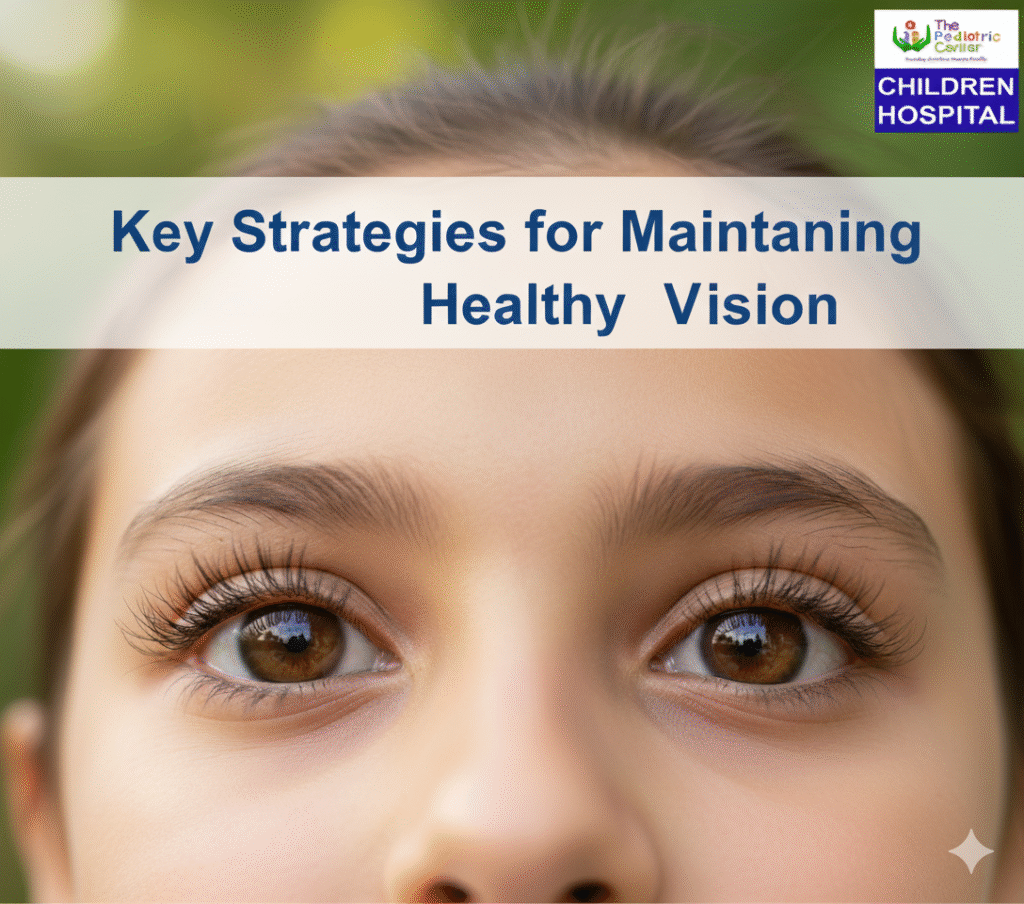
Essential Habits for Maintaining Good Sight
Good eyesight allows us to experience the world fully, yet many people neglect regular eye care until problems arise. Protecting your vision involves a combination of smart lifestyle choices, preventative measures, and routine professional care.
1. Prioritize Regular Eye Examinations
Routine comprehensive eye exams are arguably the most crucial step in maintaining good sight, as they can detect eye diseases in their early, most treatable stages, often before you notice any symptoms.
- Early Detection: Conditions like glaucoma, cataracts, and age-related macular degeneration (AMD) often have no warning signs initially. A comprehensive dilated eye exam is the only way to spot them early.
- Systemic Health Check: An eye doctor can also spot signs of other health conditions, such as diabetes, high blood pressure, and high cholesterol, by examining the blood vessels and nerves in your retina.
- Check-up Frequency: Most healthy adults should have an eye examination at least every two years. People with diabetes, a family history of eye disease, or those over 60 often require annual exams.
2. Nourish Your Eyes with a Healthy Diet
Good eye health starts with the food you eat. A diet rich in specific nutrients can help ward off age-related vision issues.
- Key Nutrients: Look for foods high in:
- Omega-3 Fatty Acids: Found in oily fish (salmon, tuna, sardines) and walnuts; they support retina health and can help relieve dry eyes.
- Lutein and Zeaxanthin: Powerful antioxidants in the retina; found in green leafy vegetables (spinach, kale, collards) and eggs.
- Vitamins C and E, and Zinc: These antioxidants and minerals help protect the eyes from damaging free radicals. Find them in citrus fruits, nuts, beans, and colorful vegetables like sweet potatoes and carrots.
3. Protect Your Eyes from External Damage
Physical protection from the sun and injury is non-negotiable for long-term vision health.
- Wear UV-Blocking Sunglasses: Exposure to the sun’s ultraviolet (UV) rays increases the risk of cataracts and macular degeneration. Wear sunglasses that block 99% to 100% of both UV-A and UV-B radiation year-round, even on cloudy days.
- Use Protective Eyewear: Always wear safety goggles or protective glasses when engaged in high-risk activities like factory work, construction, yard work, home repairs, or playing certain sports.
- Avoid Smoking: Smoking is strongly linked to an increased risk of developing cataracts, macular degeneration, and optic nerve damage. Quitting is one of the best things you can do for your vision.
4. Manage Screen Time and Reduce Eye Strain
In the digital age, prolonged screen use is a major cause of eye fatigue and dryness.
- The 20-20-20 Rule: To reduce digital eye strain, every 20 minutes, look away from your screen at an object 20 feet (about 6 meters) away for at least 20 seconds.
- Adjust Your Workspace: Position your computer screen about an arm’s length away and slightly below eye level. Adjust screen brightness and contrast to a comfortable level to minimize glare.
- Remember to Blink: People tend to blink less when using screens, which can lead to dry eyes. Make a conscious effort to blink fully and frequently, or use lubricating eye drops if necessary.
5. Maintain Overall Health
Your general health significantly impacts your eyes.
- Stay Active: Regular exercise improves blood circulation, ensuring your eyes receive essential oxygen and nutrients. It also helps manage conditions like diabetes, high blood pressure, and high cholesterol, all of which can lead to eye problems.
- Maintain a Healthy Weight: Being overweight or obese increases your risk of developing diabetes, which is a leading cause of blindness in adults.
- Practice Good Contact Lens Hygiene: If you wear contacts, always wash your hands before handling them, follow cleaning and replacement schedules exactly, and never sleep in lenses that aren’t designed for extended wear.
By making these habits a regular part of your life, you can significantly increase your chances of maintaining clear, healthy vision for years to come.
PS: Please feel free to share our articles with friends and family.
© 2024 The Pediatric Center Children Hospital
2a Sulaimon Abdullahi Street, Agungi, Lekki, Lagos
Road 2, House 20, Greenland Estate, Olokonla, Ajah-Sangotedo, Lagos
14, Bassie Ogamba Street Off Adeniran Ogunsanya Surulere, Lagos
Unsubscribe
